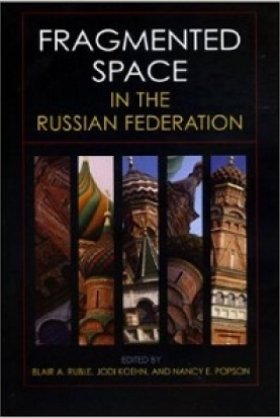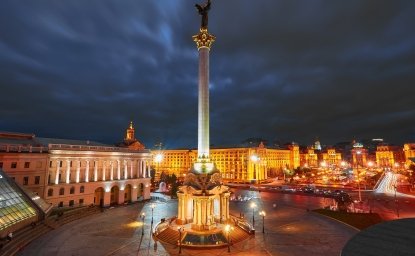Fragmented Space in the Russian Federation

-
Russia is a country of great complexity—eighty-nine subject regions, ethnic diversity, economic variance across regions, the power struggle of Moscow versus the regions—and multiple realities—urban versus rural, rich versus poor, and cosmopolitan versus provincial, just to name a few. Fragmented Space in the Russian Federation explores Russia’s complexity and the meanings of the country’s internal borders, the future of its agricultural spaces, the development of its political parties, and the effect of its federal organization.
The contributors examine stratification, citizenship, federalization, democratization, the politics of culture and identity, and globalization. These essays show how political leaders within Russia and scholars and policymakers from outside must accept the country’s complexity and view uncertainty as a positive development rather than a liability. The authors explore how Russian experience can enhance theory political science, sociology, geography, and economics.
Blair A. Ruble is director of the Kennan Institute for Advanced Russian Studies at the Woodrow Wilson International Center for Scholars. Jodi Koehn is editor, and Nancy Popson is deputy director, of the Kennan Institute.
Editors
 Blair A. RubleDistinguished Fellow;Schedule interview
Blair A. RubleDistinguished Fellow;Schedule interview
Former Wilson Center Vice President for Programs (2014-2017); Director of the Comparative Urban Studies Program/Urban Sustainability Laboratory (1992-2017); Director of the Kennan Institute for Advanced Russian Studies (1989-2012) and Director of the Program on Global Sustainability and Resilience (2012-2014)Nancy PopsonSenior AssociateBrowse Insights & AnalysisExplore More
Browse Insights & Analysis
Mark Carney to Lead Canada Amid Rising Trade Tensions With US
Duration:2:13Posted date/time:
Ukraine Between 1991 and 2022: The Problem of the Blank Canvas
Posted date/time:

